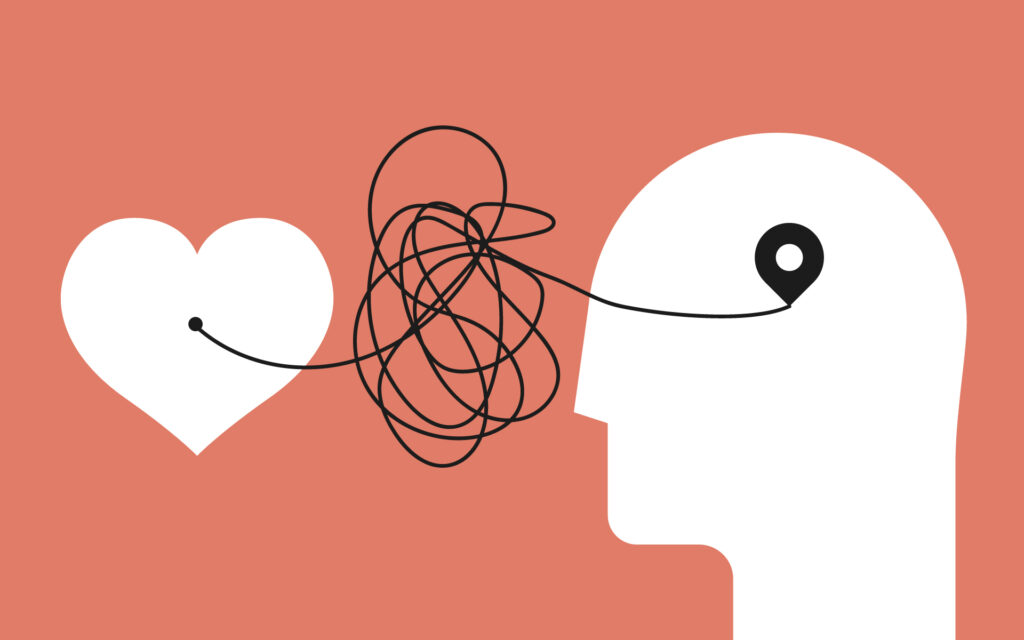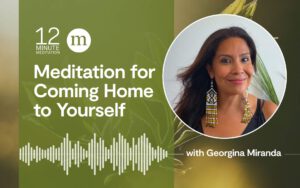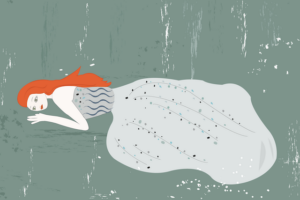Values to Dwell By: A Heart specialist on the Significance of Knowledge

I’ve cared for over 20,000 sufferers, every with a singular story of therapeutic, loss, and hope. Mary’s story, specifically, is about knowledge, and he or she taught me extra concerning the knowledge of the human coronary heart than any of my medical texts.
Once I met Mary, a full of life girl in her early sixties, she had simply been recognized with extreme coronary artery blockages. “Each step is like climbing a mountain,” she stated about her chest ache and shortness of breath. These blockages have been inflicting her discomfort each time she walked, even a brief distance. Given the extent of her coronary heart situation, I knew her therapeutic journey wouldn’t be straightforward, and we’d encounter quite a few challenges alongside the way in which.
Nevertheless, what struck me about Mary was that she was not an odd affected person. “I’ve lived loads, Physician. I do know my physique and belief its messages,” she confidently said. She possessed a deep nicely of knowledge that she was not solely prepared to use to her therapeutic but additionally desirous to share.
As we started her therapy, we confronted each highs and lows, together with episodes of extreme and scary chest pains, trials of varied drugs, and lots of changes to her life-style. “We want a plan that fits my life, not simply my coronary heart,” she insisted, exhibiting her eager perspective.
We realized the significance of seeing her situation inside a broader context, not merely as a medical ailment however as an integral a part of her life’s journey. “It’s about my high quality of life, too,” she typically jogged my memory. Our selections have been based mostly on medical experience and private instinct, mixing my data of the bodily coronary heart together with her knowledge and instinct as a affected person.
Rooted in profound and mutual empathy, our relationship transcended the everyday doctor-patient dynamic. “You’re greater than my physician. You’re part of my therapeutic,” Mary would say, acknowledging our distinctive bond.
We drew insights from shared experiences, celebrated our triumphs, and confronted tough moments collectively. I paid specific consideration to the emotional toll her situation took on her and the need of sustaining emotional steadiness for each of us. Collectively, we confronted the unknown, studying to simply accept and embrace the ambiguities and uncertainties accompanying sickness and well being.
All through historical past, healers and helpers have skilled tales of heartache and therapeutic like I skilled with Mary. These tales stand as a testomony to the facility of shared knowledge and the resilience of the human spirit. Centered round humility, openness, compassion, and a shared pursuit of that means and connection, our journey prolonged past statistics and medical textbooks. Our expertise serves as a mannequin of the knowledge accessible to every of us, guiding us towards therapeutic, well being, and happiness, not solely as docs and sufferers however as fellow human beings.
What Is Knowledge?
Have you ever ever puzzled what units really smart individuals aside? Whereas data definitely performs a job, it’s only a piece of a a lot bigger puzzle. Intelligence is just not the identical factor as knowledge. Knowledge is a approach of understanding and navigating life’s complexities that depend on expertise apart from amassing and processing data.
My quest to unravel this thriller led me down a captivating path. I explored various fields of analysis and engaged in thought-provoking conversations with consultants.
The Stanford Encyclopedia of Philosophy paints an image of knowledge grounded in, of all issues, humility. It’s about accepting life’s fixed flux and distinguishing between what we will management and what lies past our grasp. This attitude resonated with me, reminding me that true knowledge lies in recognizing our limitations and remaining open to the knowledge of others.
Optimistic psychology pioneers Christopher Peterson and Martin Seligman provide a complementary viewpoint. They determine knowledge as one of many six core virtues for a satisfying life, highlighting its multifaceted nature. Their analysis categorizes knowledge into 5 key strengths: the spark of creativity, an insatiable curiosity, the power to make sound judgments, a lifelong love of studying, and the capability to see the larger image.
Constructing upon these foundations, psychiatrists and researchers Thomas Meeks and Dilip Jeste suggest a mannequin with six distinct elements. They emphasize the significance of self-reflection, the power to handle feelings successfully, and the talent of gracefully navigating uncertainty. Moreover, they spotlight the significance of welcoming various views, fostering prosocial tendencies, and making astute social selections.
My dialog with Chip Conley, writer of Knowledge at Work: The Making of a Fashionable Elder and cofounder of the Fashionable Elder Academy, supplied a singular perspective. He poetically outlined knowledge as “metabolized expertise resulting in distilled compassion.” This struck a chord with me, emphasizing that true knowledge goes past merely accumulating experiences. It’s about extracting their essence and utilizing that data to contribute to the better good.
True knowledge goes past merely accumulating experiences. It’s about extracting their essence and utilizing that data to contribute to the better good.
Synthesizing these various viewpoints, I consider knowledge could be distilled into a number of key components:
- Humility: Recognizing our limitations and remaining open to studying from others.
- Acceptance of Uncertainty: Embracing the inherent ambiguities of life and making selections with a nuanced understanding.
- Studying from Expertise: Cultivating a relentless curiosity and extracting invaluable insights from constructive and difficult experiences.
- Perspective: Seeing the world via a wider lens, adapting to altering circumstances, and appreciating the interconnectedness of life.
- Empathy and Compassion: Understanding and resonating with the feelings of others, selling kindness, and contributing to collective well-being.
- Emotional Regulation: Managing feelings successfully, navigating challenges with stability, and fostering inside peace.
- Judgment: Making knowledgeable selections based mostly on data, expertise, and a deep understanding of the scenario.
Knowledge is a invaluable useful resource ready to be explored and found. Our understanding of knowledge could change over time, however looking for it out is prime to being human. After we are humble, study from our experiences, and develop compassion, we enrich our lives with better data, happiness, and a stronger sense of objective.
Knowledge: A Synergy of the Mind, Coronary heart, and Intestine
“Following your coronary heart” isn’t only a poetic expression. It’s a significant part of knowledge. This phrase historically symbolizes making selections based mostly on emotion and instinct relatively than simply rational thought. Right this moment, we perceive that knowledge certainly arises from a posh interaction between the mind, coronary heart, and intestine.
Neuroscience has supplied insights into the particular mind actions, areas, and pathways that knowledge depends on. As an example, particular mind components assist information us once we make ethical selections. One space, the dorsolateral prefrontal cortex, is like our mind’s chief planner, serving to us assume via selections. One other location, the anterior cingulate cortex, is sort of a mediator, serving to type out conflicts in our selections and managing our feelings. As well as, the mind’s medial prefrontal cortex lights up on purposeful MRI scans when topics ponder beneficiant actions. The steadiness of particular mind chemical substances, similar to serotonin and dopamine, could additional affect our capacity to handle feelings and empathize with others, each important necessities for smart motion.
Whereas the mind does its half, the center additionally performs a job, typically underexplored in fashionable science. Each heartbeat sends a wealth of knowledge to the mind, every pulse sending cues concerning the physique’s emotional and energetic state. This heart-to-brain communication aids us in assessing conditions and making selections. It permits us to tune in to our emotional states—from pleasure and like to worry and frustration.
Each heartbeat sends a wealth of knowledge to the mind, every pulse sending cues concerning the physique’s emotional and energetic state.
The center is greater than a sensor. It serves as a translator, conveying our bodily states in a language the mind can perceive and, with observe, correctly reply to. Strategies similar to mindfulness and heart-focused meditation have proven the potential to advertise the knowledge of the center by enhancing emotional consciousness, empathy, compassion, and altruistic conduct. Recognizing and nurturing the center’s knowledge results in higher emotional well being, improved relationships, and a extra balanced, fulfilling life.
Dr. Eve Ekman’s insights have been instrumental in deepening our understanding of knowledge, significantly referring to the function of emotional consciousness and regulation. Dr. Ekman, the well-being lead for the Well being Group at Apple Inc. and co-creator of the Atlas of Emotion with the Paul Ekman Group, bridges Western psychological constructs with Jap contemplative traditions. Her distinctive perspective accentuates the significance of emotion regulation in our holistic comprehension of knowledge.
Dr. Ekman invitations us to query the assumption that consciousness is confined to the mind. In an interview, she stated, “We don’t have proof that consciousness is contained solely inside the mind.” She believes knowledge includes the center’s “boundless and massive capability,” difficult us to contemplate a broader idea of knowledge that acknowledges the center as a seat of emotional intelligence integral to our consciousness. She speaks of the center as an entity that “transcends the bodily. It possesses a boundless and massive capability.” Dr. Ekman requires reimagining knowledge, highlighting the synergy between the thoughts and the center’s intuitive data.
Constructing on this complete view of knowledge, current advances in understanding the gut-brain connection have highlighted the significance of intestine well being, significantly the microbiome, in our cognitive and emotional processes. The intestine, with its intensive neural community, typically referred to as the “second mind,” communicates immediately with our mind, influencing our selections and feelings.
This connection means that our “intestine emotions,” deeply influenced by the state of our microbiome, are integral to intuitive decision-making. A wholesome and balanced intestine microbiome is now understood to considerably influence our temper, emotional well-being, and cognitive features, thereby influencing the event and expression of knowledge.
The mind, coronary heart, and intestine interaction enriches our knowledge and may function a path to optimum self-care and well-being. This interconnectedness helps us handle feelings, make clever selections, empathize with others, and incorporate our intuitive emotions with our rational pondering thoughts’s work.
A 5-Minute Coronary heart Meditation
Here’s a transient guided meditation for connecting along with your coronary heart’s knowledge.
- To start, discover a snug sitting place that enables your backbone to be upright but relaxed.
- Shut your eyes or soften your gaze in entrance of you, and take a couple of deep breaths, inhaling from the diaphragm and exhaling slowly and completely. Now, enable your respiratory to return to its pure rhythm.
- As you agree into this second, let go of any ideas or tales occupying your thoughts.
- Shift your consciousness to the sensations in your physique, beginning along with your ft, the place you are feeling the connection between your physique and the bottom or chair beneath you.
- Now, deliver your consideration to your thighs, the place you possibly can sense gravity gently pulling you down and the earth offering a way of security and grounding.
- Shift your focus to your shoulders, permitting them to calm down and soften. Transfer your consciousness to the house between your eyes, letting go of stress in your face and jaw muscle groups.
- Subsequent, hearken to the house round your coronary heart and delve deeper into your coronary heart heart. Ask your self, “What do I would like most?”
- Be open to no matter arises: calm, steadiness, progress, power, self-trust, connection, or love. Let that intention develop in power and fill your coronary heart like a radiant golden gentle, increasing to embody your chest and physique.
- Launch that intention, returning your consciousness to your physique and surroundings. Really feel the help beneath you, whether or not the ground or the chair. Categorical gratitude to your physique’s capacity to breathe and this second of stillness. Simply breathe and be, feeling a profound reference to what issues most.
- Whenever you’re prepared, gently open your eyes and slowly deliver motion again into your shoulders, fingers, fingers, and ft, savoring this devoted time of nurturing your coronary heart’s knowledge and well-being.
The primary excerpt on this collection explored the way to domesticate steadiness as a heart-healthy trait that counteracts stress. Within the third and ultimate excerpt, we’ll discover the trait of wholeness and the way it contributes to a balanced and fulfilling life.
Excerpted with permission from Simply One Coronary heart: A Heart specialist’s Information to Therapeutic, Well being, and Happiness by Dr. Jonathan Fisher. © Dr. Jonathan Fisher. Revealed by Manuscripts Press (2024).






